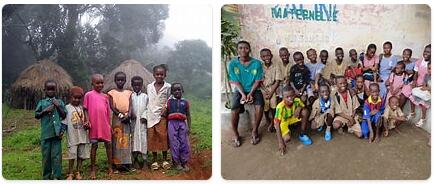Yearbook 2016
Guinea. In March, it was feared that the epidemic of ebola fever, which ravaged Guinea in 2014-15, would accelerate again. At least seven people in the southern parts of the country died during the month of the dreaded disease. Liberia, which together with Sierra Leone and Guinea was the country most affected by the epidemic, closed the border with Guinea to prevent the spread of infection. In June, the World Health Organization (WHO) declared that the outbreak was over and that Guinea was once again free of Ebola.
In October, after lengthy negotiations, the government and the opposition agreed that local elections should be held in February 2017. The last local level elections were arranged in 2005. The agreement was reached after a long period of fierce contradictions between the regime and its opponents. In August, at least half a million people gathered in the capital, Conakry, to protest the government’s policies and demand the resignation of President Alpha Condé. Particular dissatisfaction is directed at unemployment. In connection with the unrest that ensued, a 21-year-old man who did not participate in the demonstration was shot dead. From the beginning of September, Condé and opposition leader Cellou Dalein Diallo met for deliberations, which resulted in the agreement on local elections.
The current population of Guinea is 13,132,806. The country’s political parties and civil society representatives also agreed in October that people affected by the violence before the 2013 parliamentary elections should receive financial compensation. Two funds will be established, one from which funds will be obtained for people injured and relatives of those killed. Money from the second fund should go to people who lost property through looting. Even in connection with the 2015 presidential election, serious abuses were committed in the form of murders, rapes and looting. In June, the Government of Guinea was criticized by Amnesty International and Human Rights Watch (HRW) for not doing enough to investigate the crimes and bring those responsible to justice. According to the two organizations, both government and opposition supporters were abused.

In July, Guinea and Israel re-established diplomatic relations. These were interrupted in 1967 during the Six Day War. Guinea is formally a secular state but the majority of the population are Muslims.
At the end of August/September, 14 fishing vessels were discovered that were fishing in Guinea’s waters without a permit. According to thereligionfaqs, Guinea at the time carried out an action against poaching in cooperation with Guinea-Bissau, Gambia and Senegal.